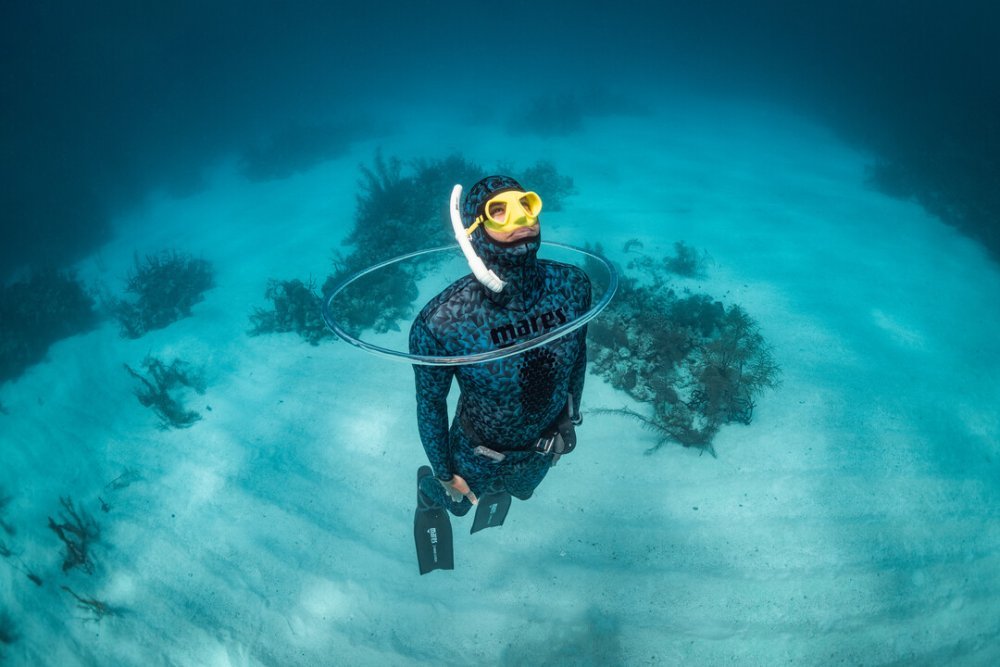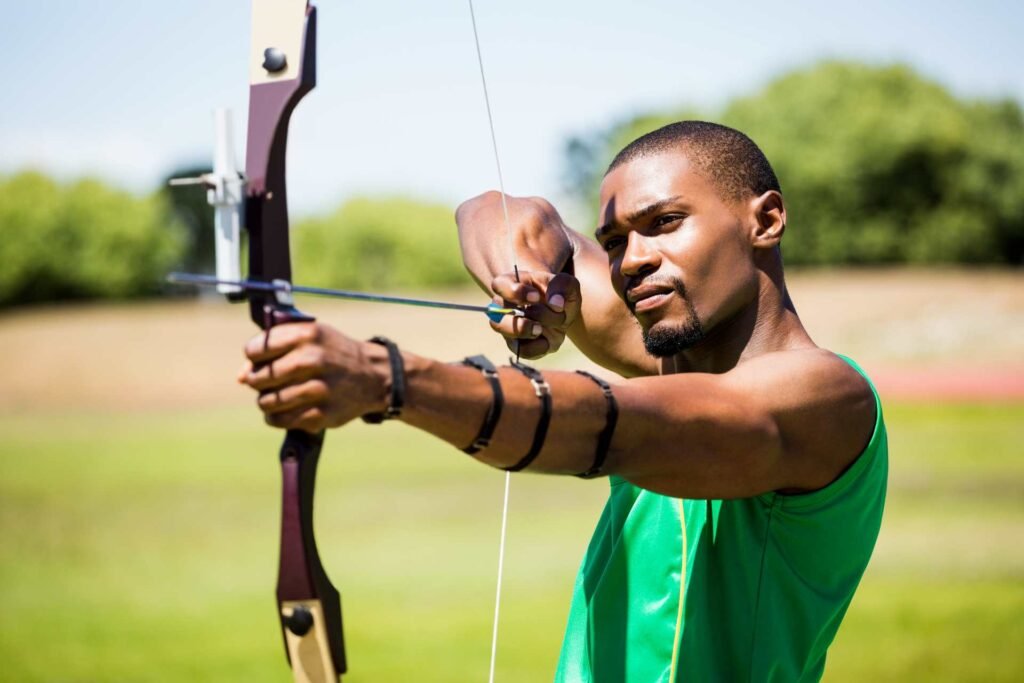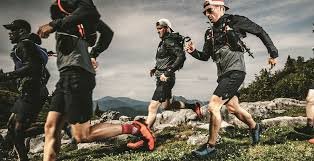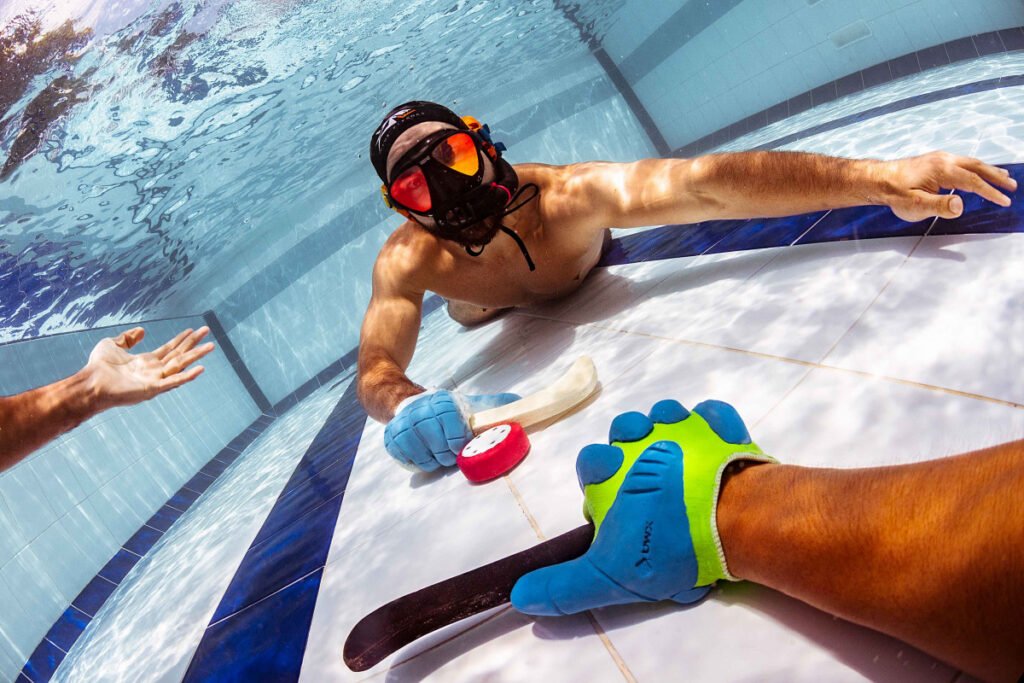In a world drowning in noise, true power comes from mastering silence.
We live in a time when every minute is filled with pings, alerts, podcasts, and chatter. Our minds are constantly under siege, making focus a rare commodity. But amidst this chaos, a counter-movement is growing — and it’s as quiet as it is effective.
Enter Silent Sports: a collection of physical disciplines where the loudest thing you’ll hear is your own heartbeat.
Elite performers, entrepreneurs, and high-value men are increasingly turning to these sports to reclaim their mental clarity, physical prowess, and emotional balance. This is about more than just fitness — it’s about rewiring the brain, developing focus, and reconnecting with a primal sense of control.
If you’re ready to escape the noise and strengthen your body and mind, this guide is for you.
Table of Contents
What Are Silent Sports?
Silent sports are physical activities where noise is minimal, communication is sparse or non-verbal, and the environment demands focus and self-reliance.
Unlike traditional team sports filled with shouting, coaches, and roaring crowds, silent sports prioritize solitude, inner dialogue, and controlled breathing.
These activities don’t just train the body — they sharpen the mind. They cultivate discipline, patience, and a deeper connection to one’s physical and mental states.
Some classic examples include:
- Freediving
- Archery
- Trail Running
- Underwater Hockey
- Long-Distance Cycling
Each sport fosters a unique relationship with silence, movement, and mental strength. Let’s explore why high-value men are gravitating toward these practices.
Why High-Value Men Are Embracing Silence in Sports
In today’s high-pressure environments, men who excel understand one critical truth:
Silence is a superpower.
When the world is loud, the man who can control his mind in stillness becomes unshakeable. Silent sports help cultivate this form of control.
1. Clarity in Chaos
Silent sports train the brain to operate efficiently in quiet, allowing the mind to process thoughts clearly without external input.
2. Mental Toughness
When you face discomfort in solitude — holding your breath underwater or running through a forest trail alone — your resilience multiplies.
3. Heightened Awareness
Silence enhances sensory awareness. You begin to feel your body’s signals, surroundings, and limits with laser precision.
4. Stress Reduction
Silent sports often double as moving meditations. They calm the nervous system, reducing cortisol and promoting mental balance.
5. Discipline and Mastery
These sports require patience and deliberate practice — traits synonymous with high-value men who lead, not follow.
5 Powerful Silent Sports for the Focused Man
1. Freediving: Mastery Beneath the Surface
Freediving is the ultimate blend of mental control and physical conditioning. It’s the art of diving deep underwater on a single breath, surrounded by the abyss, alone with your thoughts.

This sport isn’t about adrenaline — it’s about calm. Your success depends on how well you can slow your heart rate, regulate breathing, and suppress the urge to panic.
- Benefits:
- Enhances lung capacity.
- Sharpens mental focus under stress.
- Trains deep meditative states.
- Mindset Shift:
“Control your breath, control your mind.”
2. Archery: Precision Through Patience
Archery is more than pulling a string and releasing an arrow — it’s about being still, intentional, and hyper-focused.

Each shot demands complete alignment of breath, posture, and mind. Even a fleeting thought can send your aim astray. In that quiet moment before release, there’s only you, your heartbeat, and the target.
- Benefits:
- Develops patience and focus.
- Enhances motor skills and coordination.
- Offers a meditative, repetitive rhythm.
- Mindset Shift:
“Every shot is a reflection of your current mental state.”
3. Trail Running: Solitude in Motion
Imagine running through dense forests, mountains, or deserts — no headphones, no cheering crowd — just the crunch of soil beneath your feet.

Trail running offers a unique silence, filled only with nature’s subtle sounds. It strengthens your body while letting your mind wander, reflect, and reset.
- Benefits:
- Improves cardiovascular endurance.
- Builds mental stamina.
- Connects you to nature and solitude.
- Mindset Shift:
“The farther you run, the quieter the mind becomes.”
4. Underwater Hockey: Communication Without Words
Yes, underwater hockey exists — and it’s as intense as it is silent.

Players dive and glide beneath the surface, passing a puck using small sticks, all without verbal cues. Success depends on non-verbal communication, anticipation, and underwater agility.
- Benefits:
- Enhances breath control.
- Builds team synergy through observation.
- Strengthens lungs and muscles.
- Mindset Shift:
“Movement speaks louder than words underwater.”
5. Bonus – Long-Distance Cycling: Endurance in Silence
Cycling for long stretches — especially solo — is a test of endurance and mental fortitude. With only the hum of tires on asphalt, you’re left alone with your thoughts, confronting both physical strain and mental barriers.

Many high-value men use cycling as their moving meditation, covering hundreds of miles not just to train, but to think, strategize, and reflect.
- Benefits:
- Boosts stamina and leg strength.
- Clears mental clutter.
- Encourages deep thinking sessions.
- Mindset Shift:
“Miles traveled in silence reveal the miles within.”
Mental Mastery Through Physical Silence
The real strength of silent sports isn’t just physical — it’s deeply psychological.
The Neuroscience Behind It
When the brain is free from external noise, the Default Mode Network (DMN) activates — the same neural network linked to deep thinking, self-reflection, and creative insight.
Silent sports enhance this activation, allowing you to:
- Improve decision-making under pressure.
- Cultivate emotional regulation.
- Develop greater self-awareness.
Discipline for Life
Men who excel in silent sports often translate that discipline into:
- Business strategy.
- Leadership calmness.
- Relationship stability.
This is why silent sports aren’t just hobbies — they’re training grounds for life mastery.
Building Your Silent Sports Routine
If you’re new to this, start small.
Step 1: Choose Your Silence
- If you crave underwater tranquility: Freediving.
- If focus is your goal: Archery.
- If nature calls you: Trail Running.
- If you want team dynamics: Underwater Hockey.
- If endurance excites you: Cycling.
Step 2: Gear Up
Invest in quality equipment. A poor bow or low-grade fins won’t just hamper performance — they’ll frustrate your experience.
Step 3: Schedule the Silence
Dedicate at least one silent sport session per week. Mark it in your calendar like a business meeting — because mental fitness deserves priority.
Step 4: Track Mental Shifts
Keep a journal after each session:
- How did you feel before and after?
- What thoughts surfaced during the activity?
- Are you noticing increased focus elsewhere in life?
FAQ: Quiet Sports & Mental Focus
1. What are quiet sports?
Quiet sports are physical activities practiced in low-noise, calm environments where focus, control, and internal awareness are key.
2. Why do high-value men prefer quiet sports?
They offer opportunities to build discipline, sharpen focus, manage stress, and develop inner strength — traits that successful men cultivate.
3. How do these sports enhance mental health?
By promoting mindfulness, reducing stress, and providing space for reflection, these sports support emotional and psychological well-being.
4. Which quiet sport is ideal for beginners?
Trail running is highly accessible for beginners and provides both physical and mental benefits with minimal equipment.
5. Are these sports physically challenging?
Yes, but each activity can be adjusted for different fitness levels, making them accessible while still providing growth challenges.
6. Can practicing these activities reduce anxiety?
Definitely. Many of these sports emphasize breath control and mental calm, which are effective in reducing anxiety and tension.
7. Do I need special equipment?
It depends on the sport. For example, freediving and archery require specific gear, while running and cycling need only basic essentials.
8. How frequently should I practice to see results?
Engaging in these activities 1-3 times per week can lead to improvements in mental clarity, physical health, and emotional balance.
9. Are these activities a substitute for meditation?
While not a direct substitute, they offer a moving form of meditation, engaging both body and mind in a focused state.
10. Will these sports help improve my concentration?
Yes. Activities like archery and freediving require sustained attention, which naturally enhances concentration skills.
11. Which activity best improves breath control?
Freediving is particularly effective for developing advanced breath control and lung capacity.
12. Can older individuals participate in these sports?
Absolutely. Sports like cycling, archery, and trail running can be tailored to different ages and physical conditions.
13. How can I stay motivated when practicing alone?
Set clear goals, track your progress, and focus on the internal rewards of increased focus and mental peace.
14. Do these activities improve leadership abilities?
Yes, because they develop patience, decision-making under pressure, and emotional regulation — essential leadership qualities.
15. Are there risks involved?
Some activities, like freediving or running in remote areas, do have risks. Proper training, preparation, and safety measures are essential.
16. What options exist for indoor practice?
Indoor archery, stationary cycling, and swimming are all low-noise, focus-driven sports you can enjoy indoors.
17. Can these sports enhance creativity?
Yes, the mental clarity achieved during these activities often leads to increased creativity and problem-solving skills.
18. Can I experience these sports in a group setting?
Yes, underwater hockey, for example, is team-based yet relies on non-verbal cues and focus-driven interaction.
19. What mental benefits can I expect?
You can develop patience, resilience, emotional control, sharper focus, and deeper self-awareness.
20. How should I start practicing these sports?
Select a sport that matches your interests and lifestyle, gather the necessary gear, commit to regular practice, and reflect on your progress.
Shut Up and Move
In a world addicted to noise, the man who can thrive in silence holds the advantage.
Silent sports are more than activities — they are disciplines that reshape how you think, move, and conquer life’s challenges. Whether it’s holding your breath in deep waters or hitting the bullseye in complete stillness, each session refines the mind as much as the body.
Your Challenge:
This month, pick one silent sport. Commit to it. Embrace the discomfort. Let the silence teach you.
Because real strength doesn’t shout —
It moves quietly.
Ready to reclaim your focus and power? Start your silent sports journey today.
Shut up. Move. Win. Subscribe to MindGearMen.


